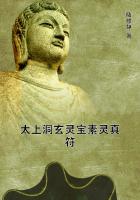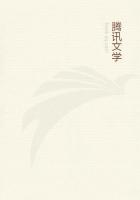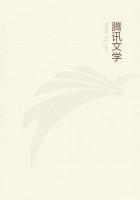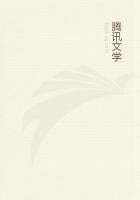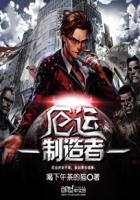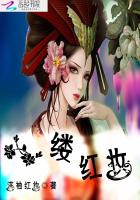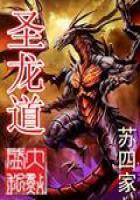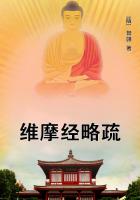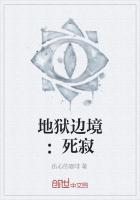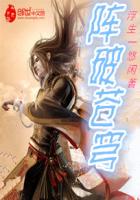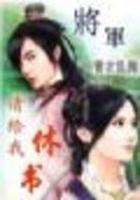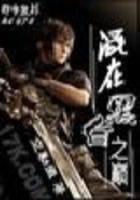Of the poetry which imitates in hexameter verse, and of Comedy, we will speak hereafter. Let us now discuss Tragedy, resuming its formal definition, as resulting from what has been already said.
Tragedy, then, is an imitation of an action that is serious, complete, and of a certain magnitude; in language embellished with each kind of artistic ornament, the several kinds being found in separate parts of the play; in the form of action, not of narrative; through pity and fear effecting the proper purgation of these emotions. By 'language embellished,' I mean language into which rhythm, 'harmony' and song enter. By 'the several kinds in separate parts,' I mean, that some parts are rendered through the medium of verse alone, others again with the aid of song.
Now as tragic imitation implies persons acting, it necessarily follows in the first place, that Spectacular equipment will be a part of Tragedy. Next, Song and Diction, for these are the media of imitation. By 'Diction' I mean the mere metrical arrangement of the words: as for 'Song,' it is a term whose sense every one understands.
Again, Tragedy is the imitation of an action; and an action implies personal agents, who necessarily possess certain distinctive qualities both of character and thought; for it is by these that we qualify actions themselves, and these- thought and character- are the two natural causes from which actions spring, and on actions again all success or failure depends. Hence, the Plot is the imitation of the action- for by plot I here mean the arrangement of the incidents. By Character I mean that in virtue of which we ascribe certain qualities to the agents. Thought is required wherever a statement is proved, or, it may be, a general truth enunciated.
Every Tragedy, therefore, must have six parts, which parts determine its quality- namely, Plot, Character, Diction, Thought, Spectacle, Song. Two of the parts constitute the medium of imitation, one the manner, and three the objects of imitation. And these complete the fist. These elements have been employed, we may say, by the poets to a man; in fact, every play contains Spectacular elements as well as Character, Plot, Diction, Song, and Thought.
But most important of all is the structure of the incidents. For Tragedy is an imitation, not of men, but of an action and of life, and life consists in action, and its end is a mode of action, not a quality. Now character determines men's qualities, but it is by their actions that they are happy or the reverse. Dramatic action, therefore, is not with a view to the representation of character: character comes in as subsidiary to the actions. Hence the incidents and the plot are the end of a tragedy; and the end is the chief thing of all. Again, without action there cannot be a tragedy; there may be without character. The tragedies of most of our modern poets fail in the rendering of character; and of poets in general this is often true. It is the same in painting; and here lies the difference between Zeuxis and Polygnotus. Polygnotus delineates character well; the style of Zeuxis is devoid of ethical quality. Again, if you string together a set of speeches expressive of character, and well finished in point of diction and thought, you will not produce the essential tragic effect nearly so well as with a play which, however deficient in these respects, yet has a plot and artistically constructed incidents. Besides which, the most powerful elements of emotional interest in Tragedy- Peripeteia or Reversal of the Situation, and Recognition scenes- are parts of the plot. A further proof is, that novices in the art attain to finish of diction and precision of portraiture before they can construct the plot. It is the same with almost all the early poets.
The plot, then, is the first principle, and, as it were, the soul of a tragedy; Character holds the second place. A similar fact is seen in painting. The most beautiful colors, laid on confusedly, will not give as much pleasure as the chalk outline of a portrait. Thus Tragedy is the imitation of an action, and of the agents mainly with a view to the action.
Third in order is Thought- that is, the faculty of saying what is possible and pertinent in given circumstances. In the case of oratory, this is the function of the political art and of the art of rhetoric: and so indeed the older poets make their characters speak the language of civic life; the poets of our time, the language of the rhetoricians. Character is that which reveals moral purpose, showing what kind of things a man chooses or avoids. Speeches, therefore, which do not make this manifest, or in which the speaker does not choose or avoid anything whatever, are not expressive of character.
Thought, on the other hand, is found where something is proved to be or not to be, or a general maxim is enunciated.
Fourth among the elements enumerated comes Diction; by which I mean, as has been already said, the expression of the meaning in words; and its essence is the same both in verse and prose.
Of the remaining elements Song holds the chief place among the embellishments The Spectacle has, indeed, an emotional attraction of its own, but, of all the parts, it is the least artistic, and connected least with the art of poetry. For the power of Tragedy, we may be sure, is felt even apart from representation and actors. Besides, the production of spectacular effects depends more on the art of the stage machinist than on that of the poet.

